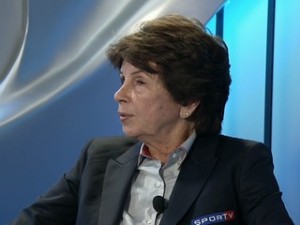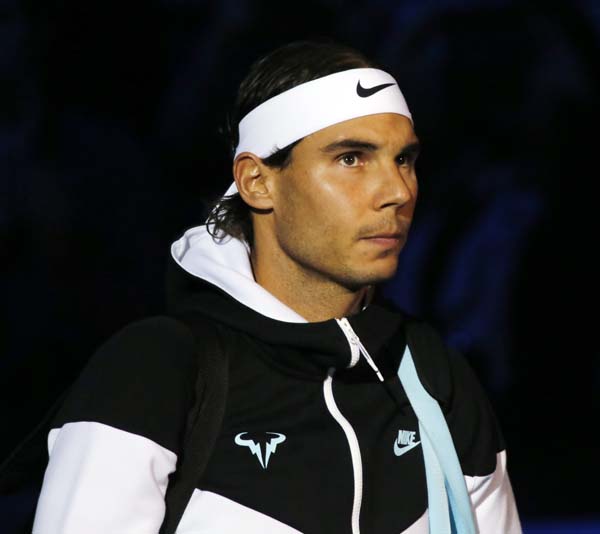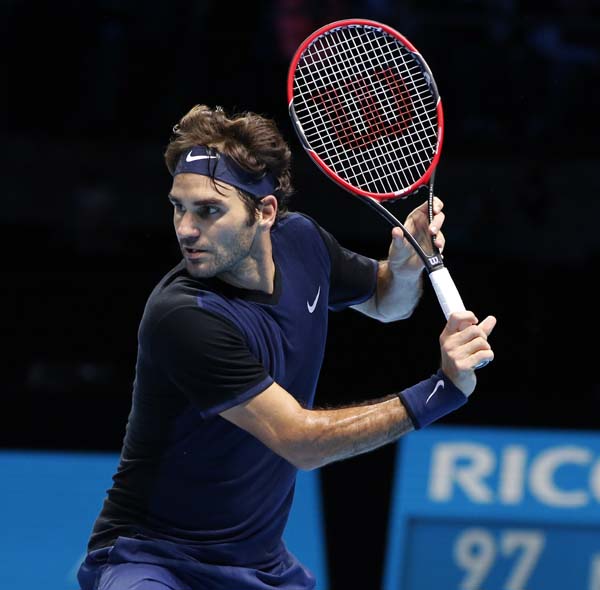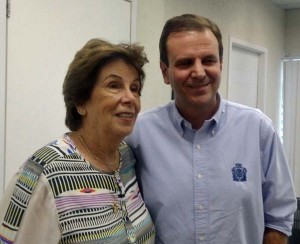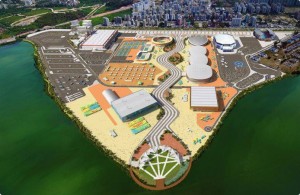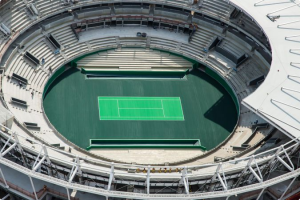Maria Esther Bueno has been covering the live matches from the ATP World Tour Finals at the TV Globo/SporTV studios in Rio de Janeiro and meeting the Mayor of Rio de Janeiro ahead of the 2016 Olympics.
“It’s been a great tournament so far,” she told the website. “I’m really looking forward to the semi-finals on Saturday.
“Rafa’s [Nadal] form has improved so much, it’s great to see. He has worked really hard to get back and I think seeing how Roger [Federer] managed to re-invent himself over the past few years must have inspired him, and really encouraged him not to give up.
“I know how hard it is to come back from injuries and you can’t let yourself get discouraged, or give up on your belief. Rafa seems to have finally regained his confidence and it is surprising because he has done it on his least favourite surface on indoor hard courts.”
- Rafael Nadal at the Barclays ATP Tour Finals in London [Photo by David Musgrove]
- Roger Federer sporting his ‘magical beard’ at the ATP Finals [Photo by David Musgrove]
“To see both Roger and Rafa reach the semis in such a strong field is fantastic. I’m really pleased for them!” continued Maria.
“The way Roger played to beat [Novak] Djokovic on Tuesday was really amazing. Djokovic may well have had a bit of an off day but to bring his 23 match winning streak to an end in such an important tournament is a very good result for Roger and a great boost for him at the age of 34.”
Any predictions?
“Not yet,” laughed Maria. “We have to see who makes it through to the other spot!
“We know now that Nadal will play Djokovic but who gets to play Federer? [Andy] Murray or [Stan] Wawrinka? That’s tonight.”
A visit to the Mayor
Maria has been busy off-air too. On Wednesday she was invited to meet Eduardo da Costa Paes, the Mayor of the City of Rio de Janeiro.
“I was delighted to meet the Mayor because he has done so much in preparation for the Olympics next year,” said Maria. “He could not have been nicer!
“It is all coming together with all the arrangements which are, of course, very complicated and extensive.
“We talked about it all and how well the Olympic Organising Committee is doing in the build-up to Rio. It was a very interesting and good meeting.”
Maria learned that on a vast construction site in Barra da Tijuca, a far-flung Rio suburb, a series of giant lozenge-like structures are rising from the dust.
The three arenas, known as Carioca 1, 2 and 3, will stage events ranging from basketball to wrestling in nine months during the 2016 Olympics.
Unlike the nation’s frenzied last-minute preparations for the 2014 World Cup, the atmosphere at the Olympic Park, which also includes an aquatic stadium, tennis arena, velodrome and other facilities, is almost relaxed.
The projects are running on time and within budget, unlike for the World Cup in which costly blowouts sparked mass protests in 2013 against the event.
The secret, says Mayor Eduardo, is heavy private sector funding for the Olympics and the use of a number of innovative techniques including temporary stadiums that can be dismantled and turned into other public facilities such as schools after the games.
“I see the Olympics as a political event,” said the Mayor, an energetic 45-year-old who some analysts see as a possible candidate for President of Brazil if the games go well.
“For me, the event is to show that, here, we can also do things on time and leave a legacy.”
Delivering the games was never going to be easy in a city such as Rio, whose natural beauty contrasts with its stark social inequality.
Critics say that the Olympics have been constructed in a manner that promotes urban segregation but independent public works inspired by the games, such as rapid bus-transit lanes, a metro line, and a revamp of the derelict port district are clear legacy projects.
The Mayor says that the private sector is funding two-thirds of the costs of the venues, while the government is providing public land for the athletes’ village, the Olympic Park and other facilities.
These are being constructed by private-sector companies, which in exchange will later sell them as real estate ventures.
“Why are the games not unpopular?” said Mr Paes, citing polls that show public support for the event.
“Because there is no scandal . . . everything is being done in a modest way.”
To see how it is all coming together in Rio, watch these videos.
The Olympic Games takes place in Rio de Janeiro from 5-21 August, 2016, and the Olympic Tennis Event will start on Saturday 6 August and finish on Sunday 14 August.
Monday 15 August is reserved as a contingency day in case of bad weather.
Here are some interesting links: –

